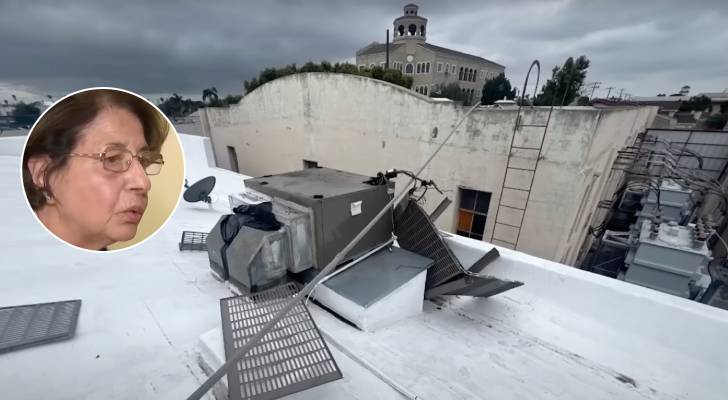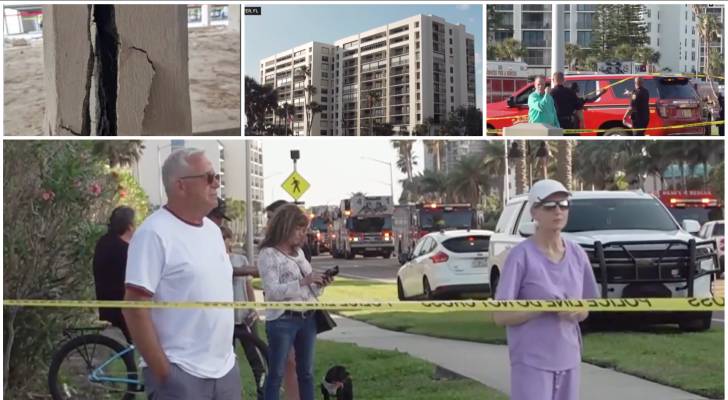This LA building is being taken over by squatters, crime, vandalism, even fires. Owner has spent $100K on repairs — but the city hasn’t acted. Here’s what she’s up against in California


The owner of a commercial building in Huntington Park, California, says she’s been battling squatters for years — and she’s had enough. Dr. Tahani Soliman, who owns an office near Rugby and Slauson avenues, says trespassers have repeatedly caused fires, stolen utilities and stripped rooftop air conditioning units. Despite spending thousands on repairs and security, […]
A Massive 25-foot sinkhole swallowed a California construction site, damaging vehicles and a nearby property — here are your options if a ‘shoring failure’ ever lands at your doorstep


A massive sinkhole that opened up in Ventura, California, has damaged several vehicles, forced officials to red-tag a nearby property and left residents questioning the safety of local construction sites. The 25-foot hole appeared in late May near Thompson Boulevard and East Front Street at a construction site for a new apartment complex. While it […]
New York woman was about to get scammed out of $408,000 in gold bars — then this local angel saved her nest egg just in time. How it all went down and how to avoid a similar ordeal
A single phone call happened to save a Rochester woman more than $400,000. Mike DeMarino, the owner of Med City Coin & Bullion, became suspicious when a woman called requesting to purchase hundreds of thousands of dollars’ worth of gold. Don’t miss I’m 49 years old and have nothing saved for retirement — what should […]
My dad just died and I found out he cut all 3 of his other kids out of his will for ‘betraying’ him — I feel guilty keeping everything and my siblings are furious. What should I do?
The death of a loved one can be devastating for a family, but when a disputed will quickly follows the funeral, the grieving process often turns into a bitter dispute. Case in point: the Levitt family. Caroline Levitt, a 29-year-old woman who is grieving the loss of her father, has been grappling with backlash from […]
‘This is our lifeline’: Las Vegas seniors with mobility issues say a broken elevator in their building left them stranded in their units for more than a week — what to do if it happens to you


Residents at Harmony Senior Apartments in Las Vegas say they were effectively trapped in their homes for more than a week after the only working elevator in one of the buildings broke down. Many use walkers or wheelchairs and say that without the elevator, it’s impossible to manage basic daily tasks. “This is our lifeline […]
‘It’s a living nightmare’: Michigan renters say they’ve endured water shut-offs for months — and even when it’s on, it’s not safe to drink. And then their water bills spiked inexplicably


Residents in a Riverview, Michigan apartment complex say they’ve been living without reliable running water for months. “It’s affecting our everyday lives … and causing major stress,” Robert Bangs, a Huntington House Apartments resident told WXYC 7 News. “Can we go home and take a shower? Can we use water? And they even did it […]
UPS told California man his son’s guitar was destroyed in a wildfire — then he found it for sale online and drove 7 hours to get it back. How to protect your stuff when shopping online
Tony Diaz purchased a rare guitar for his son, but when the package never arrived and UPS claimed it was lost, Diaz wasn’t buying it. UPS actually offered several explanations for why the guitar didn’t arrive, including a claim that it was destroyed in the recent Southern California wildfires, but Diaz was unconvinced. Don’t miss […]
‘It’s not my fault’: Oakland Chinatown businesses say they’re fed up with the city for fining them thousands after vandals repeatedly graffiti their properties. Now they’re fighting back


Shop owners in Oakland’s Chinatown are fed up with vandals who repeatedly graffiti their stores and with city officials who keep fining them for it. It’s a never-ending cycle: the walls are spray-painted and employees paint over it, only for the tags to reappear. But the city doesn’t seem to be going after the taggers. […]
Florida firefighters rushed to evacuate 60 residents from high-rise after a massive crack was spotted in one of its columns — why the state still faces safety challenges post-Surfside


In early May, construction crews working in the parking garage of South Beach III Condominiums in Clearwater, Florida, spotted a "several‑foot‑wide crack” in a concrete support pillar. As CBS News reports, they immediately flagged the structural concern, eager to prevent another tragedy like the 2021 condo collapse in Surfside, Florida, which killed 98 people. Within two hours, […]
California woman suing Costco for $14M after she says a liquor cabinet display fell on her, leaving her with serious injuries — what to know if you’re ever injured due to a store’s negligence


A woman in Santa Rosa, California, is taking legal action against Costco, seeking more than $14 million in damages after she says a display cabinet fell on her and caused lasting injuries. The lawsuit, filed by Sadie Novotny, stems from a March 22 incident at the local Costco warehouse. Court filings reviewed by ABC 7 […]
